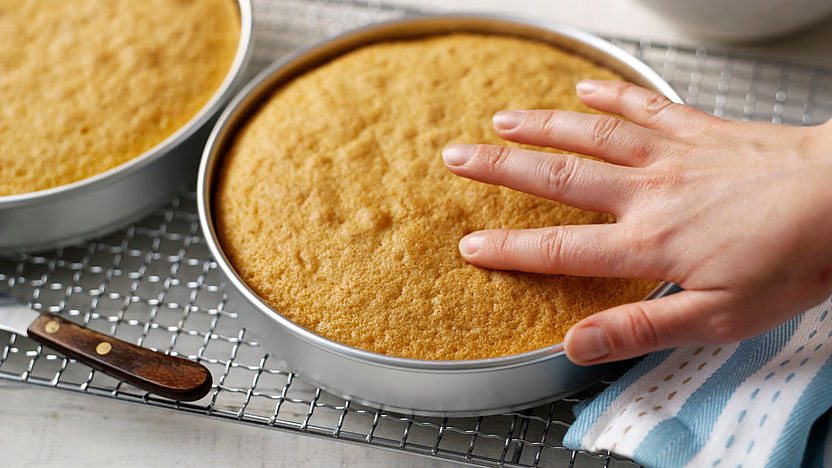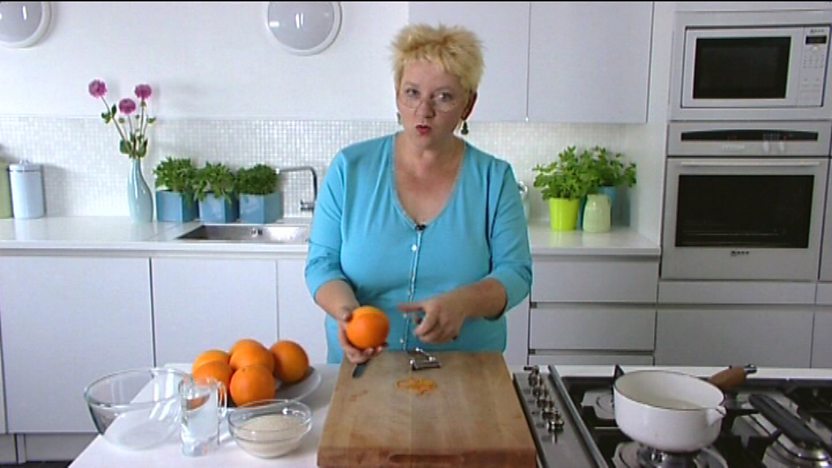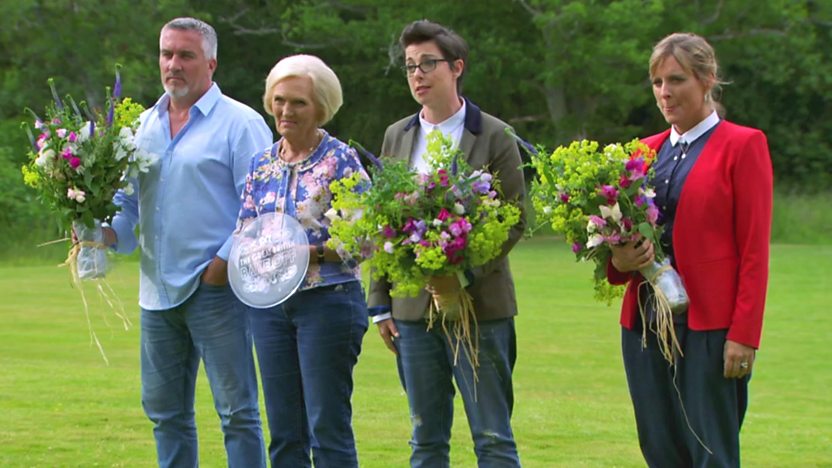My big fat British wedding cake
Nadiya dresses up the ever-popular lemon drizzle cake to make it suitable for special occasions.
For this recipe you will need a 20cm/8in spingform cake tin and board, a microwave and a rolling pin.
Ingredients
For the lemon cake
- 225g/8oz unsalted butter, softened, plus extra for greasing
- 225g/8oz caster sugar
- 4 medium free-range eggs
- 3 lemons, zest only
- 225g/8oz self-raising flour
For the lemon drizzle
- 2 lemons, juice only
- 75²µ/2½´Ç³ú caster sugar
For the lemon curd
- 2 lemons, juice and zest
- 100²µ/3½´Ç³ú caster sugar
- 50²µ/1¾´Ç³ú butter
- 2 free-range eggs
- ½ tbsp cornflour
For the lemon buttercream
- 125g/4½oz unsalted butter
- 250g/9oz icing sugar, sifted
- 2 tsp Sicilian lemon extract
For the marshmallow fondant
- 300g/10½oz white marshmallows
- ivory food colouring
- 550g/1lb 4oz icing sugar, sifted
- vegetable fat (such as Trex), for greasing
- cornflour, for dusting
To decorate (optional)
- pearl lustre spray
- a gold ribbon and pins to secure it in place
- gold lustre dust
- rejuvenator spirit (used with the lustre dust to create edible paint)
- a decorative jewel
For the sugar paste flowers (optional)
- 1 kg/2lb 4oz sugar flower paste
- vegetable fat (such as Trex)
- pink gel food colouring
Method
Preheat the oven to 180C/160C Fan/Gas 4. Line and grease a 20cm/8in springform cake tin.
Cream together the butter and sugar until pale and fluffy. Beat in the eggs one at a time then add the lemon zest. Mix in the flour and pour the batter into the prepared tin. Smooth the surface and bake for an hour, or until a skewer inserted into the centre comes out clean.
For the lemon drizzle, add the lemon juice and sugar to a saucepan and warm through. Leave to cool, then brush it over the surface of the cooked cake while it is still warm. Set aside to cool completely.
For the lemon curd, whisk together all the ingredients in a saucepan. Heat gently, stirring every now and then, until thickened. Set aside to cool completely.
For the lemon buttercream, beat the butter until soft and fluffly. Add the icing sugar slowly until completely combined, pale and fluffy. Stir in the lemon extract.
Slice the cake in half horizontally and fill with buttercream and lemon curd. Place on a cake board. Spoon any remaining buttercream on top of the cake and smooth it down to completely cover the cake in a smooth ‘crumb coat’. It doesn’t need to look great at this stage, but it is important that the top and edges are straight and smooth (so that lumps don’t show through when the cake is covered with fondant icing).
For the marshmallow fondant, add the marshmallows, a tablespoon water and a little food colouring to a microwave safe bowl.
Heat in short bursts in a microwave on a medium heat, stirring well each time, until the marshmallows are melted. Stir in the icing sugar and mix until it forms a rough paste - don’t worry if there are still lumps of icing sugar at this stage.
Grease your hands and a work surface with vegetable fat. Tip out the marshmallow paste and knead until the paste is smooth. Shape it into a rough circle wrap in cling film and set aside.
Dust a clean work surface and a rolling pin with cornflour and roll out the marshmallow fondant until large enough to cover the cake with some excess.
Lift the marshmallow fondant onto the cake and smooth the top using a fondant icing smoother if you have one, or your hands. Carefully smooth down the sides, making sure you push out any air bubbles as you go. If you have any small creases rub them out using a little cornflour. Trim off any excess icing from the bottom.
If using the decorations, spray the cake with pearl lustre spray and cover the bottom edge with ribbon and secure in place. Mix 2 tablespoons of lustre dust with enough rejuvenator spirit to make a paint. Neatly brush a large gold circle on top of the cake and set aside to dry. Reserve any leftover paint.
To make the sugar flowers, knead the paste on a work surface greased with vegetable fat until pliable. Add a few drops of the colouring and knead until the paste is evenly coloured.
Cut out petal shapes and use a baller icing tool (or a round knife handle) to thin out the edges. Pull the petals together to make flowers and pinch the bottom to make them stay together. Paint the edges of the petals with gold paint. Trim off any excess from the ‘stalk’ and arrange the flowers on top of the cake.




